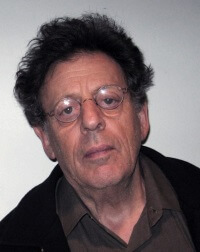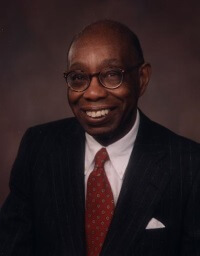Like a rock in the surf is the music of the bull-born composers
The music of those born under this sign (21 April to 20 May) is considered to be consistent, creative and sensual. If it is not played pedantically and with sensitivity, the bull can get out of control. This is what astrology says. But you can see for yourself if this is true:
The 100th anniversary celebrants born under the zodiac sign of the bull are:

The Latvian-born Canadian musician Tālivaldis Ķeniņš, professor emeritus of the University of Toronto, was known for his chamber music as well for composing eight symphonies, 12 concertos, three cantatas, an oratorio, choral works and several educational pieces. Kenins left Latvia for France following the Second World War, landing in Toronto in 1951 to serve as organist and music director at St. Andrews Latvian Lutheran Church.
Silja Walter studied literature at the University of Fribourg Switzerland and later worked in the Catholic youth movement. In 1948 she entered the Benedictine monastery of Fahr, where she has been living as Sister Maria Hedwig ever since. Her poetic talent is at the service of her consecrated life. Thus her literary work bears witness to her lived search for God. In numerous texts – poetry, drama, prayer – she testifies that life in a monastery can be a living sign for the life of a Christian in general. She has received numerous literary and cultural awards, including the Swiss Schiller Foundation Prize, the Literary Prize of the City of Zurich and the Art Prize of the Canton of Solothurn.
Brian Fahey learned piano and violoncello, and after basic training, he began his studies in arranging, composing, big band and jazz as a teenager.

Pete Seeger: The son of the musicologist Charles Seeger and the violin teacher Constance de Clyver Seeger (1886-1975), Pete Seeger dedicated himself to the collection of American folk songs and Southern blues after an abandoned sociology study at Harvard University. He also played his own songs with the five-string banjo, in which he showed solidarity with the labor movement, with minorities and with poorer countries.

Paul Manz Paul Manz was an American composer for choir and organ. His most famous choral work is the Advent motet “E’en So, Lord Jesus, Quickly Come”, which has been performed at the Festival of Nine Lessons and Carols at King’s College, Cambridge, though its broadcast by the neighboring Choir of St John’s College, Cambridge, in its Advent Carol Service precipitated its popularity. His most famous organ works are his volumes of neo-Baroque chorale preludes and partitas. Paul Manz long served the church as recitalist, composer, teacher and leader in worship. He was Cantor Emeritus at the Evangelical Lutheran Church of Saint Luke, Chicago, Illinois; as well as Cantor Emeritus of Mount Olive Lutheran Church in Minneapolis, Minnesota. He was the director of the newly established Paul Manz Institute of Church Music, and was Professor Emeritus of Church Music at Christ Seminary Seminex at the Lutheran School of Theology at Chicago.
Johann Nepomuk Pavlis sen. lived as a conductor and director of a military music school in Prague. Pavlis received violin and trombone lessons as a child and later studied trumpet and trombone at the Prague Conservatory. From 1840 he was the conductor of the Hussar Regiment No. 3 for two years and then the first trombonist to join the orchestra of the National Theatre in Prague. In 1855 he was appointed director of the Military Music Association founded by F. W. Swoboda in 1850, which was dedicated to the training of military musicians. Only one year later he established a school for flugelhorn, trumpet and euphonium. From 1866 he taught at the Prague Conservatory (J. Kail’s representative) and was Kapellmeister in Prague. In 1865 he founded an agency for music affairs in Prague.
Erich Giuliani received his first music lessons (violin) at the age of 8 from his father in Munich, at the age of 10 (guitar) from Lotte Busch, later from Prof. Albrecht Munich. At the State Academy of Music in Munich he completed his studies with the solo hornist of the Bavarian State Opera in Munich and professor at the Munich Music Academy Josef Suttner, majoring in horn. After engagements in the Bavarian State Orchestra and Theater am Gärtnerplatz (1937) Giuliani was principal horn of the Innsbruck Symphony Orchestra (1939-1967) and leader of the horn class at the Innsbruck Conservatory (1939-1978). Numerous graduates of Giuliani’s class are engaged in various Austrian and foreign orchestras or are active as horn teachers. Erich Giuliani composed numerous works for various instrumentations (textbooks, horn ensemble, chamber music, songs, marches, symphonic music).







